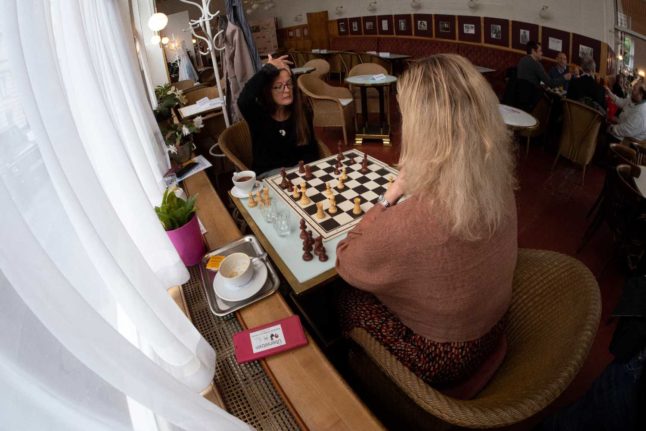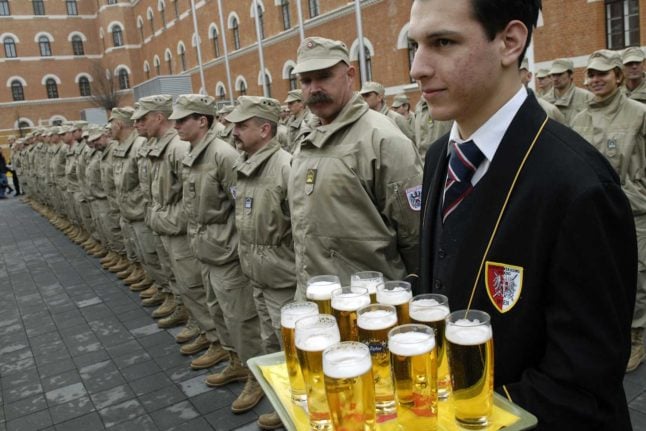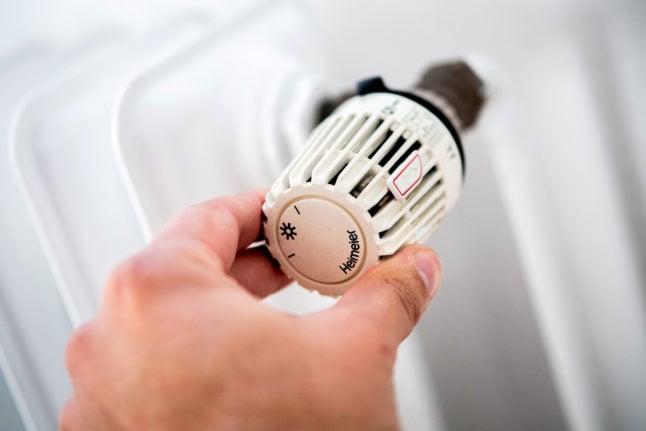Whether it’s buying a loaf of bread, shopping for furniture or even a house, it’s highly likely that it will cost more in Austria than it does in your home country.
In fact, a study by GOBankingRates ranked Austria at number 19 in the top most expensive countries in the world to live, coming in above the UK and neighbouring Germany.
Austria’s high rates of taxation is cited as the main reason. But thankfully, it’s not all bad news.
Depending on where you’re from, there are actually some things in Austria that are cheaper than other western countries.
Here are five of them.
Beer
For anyone familiar with going out in cities like London, where the average cost of a pint of standard lager is around £4.50 (€5.20), buying beer in Austria is surprisingly cheap.
The average price for a pint of domestic beer in Austria is €3.20 – around £2.76.
Then there is Vienna, which is the capital city and often more expensive than the rest of the country. But beer is still cheaper with the average price for a half litre of beer in a bar at €4.20 (approximately £3.60 or US$5).
And if you want to drink at home it costs even less with the average price of a can of domestic beer at €0.49 and other beers at around €1.29.
The big difference in price comes from the tax rate. For example, in the UK, tax on beer, wine and spirits is 20 per cent. But in Austria it’s just nine per cent.

Rent
In most places in Austria, rent is affordable. Especially when compared with other western countries like the UK and the US.
Even in Vienna rent is significantly cheaper than other capital cities like Paris and London. This is due to subsidised social housing with around 60 per cent of Vienna’s residents living in rent-controlled apartments.
According to the latest figures from Expatistan, the average cost to rent an 85 m2 apartment in Vienna is €1,017. In Paris, the average cost is €2,053 and in London it’s £1,801 (€2,085).
That’s a big difference and one of the main reasons that Vienna is regularly named as one of the best places to live in the world.
Outside of Vienna, the average cost of rent in Austria for an 85 m2 accommodation is €1,108. In France it’s €1,180 and in the UK it’s £1,114.
Petrol
Austria can be cheaper for petrol. But this very much depends on where you’re from with fuel prices varying around the world.
If you’re from the USA where the average price for a litre of petrol is US$0.64, then petrol in Austria is much more expensive than back home.
However, for those from countries like the UK, Germany, France and Italy, petrol in Austria is definitely cheaper.
The average price for a litre of petrol in Austria is €1.10. To offer a comparison, in Italy it’s €1.41.
Coffee
Austrians love coffee, which is no surprise with it being next door to Italy. Coffee is also quite cheap to buy in cafes – especially when compared with other places.
The average price for an espresso in Vienna is €2.70 and a cappuccino is €3.90. It can be more expensive in tourist areas though.
Whereas in London, the average price for a cappuccino is £3.50 (approximately €4) and in Zurich it’s CHF5 (around €4.50).
In general, the average price for a cappuccino in a café in Austria is €3.15.
Of course, there are other places in the world where coffee is much cheaper (hello Portugal at €1.69). But when you live in an expensive country like Austria, you have to take a win when you find it.

Public transport
Cost savings on public transport are available throughout Austria.
Even in Vienna, which for a capital city of a wealthy European country has an affordable public transport system.
First, children under six in Vienna travel for free on all forms of public transport (train, bus, tram) and under 15s travel for free on Sunday, public holidays and during official school holidays.
For adults, a single travel ticket costs €2.40. An unlimited 24-hour pass costs €8 and the price for an unlimited weekly pass is €16.20.
But you can buy an annual pass (Jahreskarte) for all public transport in Vienna for just €365.
In London, an annual travel card for zones 1 to 9 on the tube and rail service costs £3,764. This alone makes many Brits in Vienna very happy.
For a country-wide overview, the average cost for a monthly public transport pass in Austria is €48 – quite a reasonable price.



 Please whitelist us to continue reading.
Please whitelist us to continue reading.
Member comments